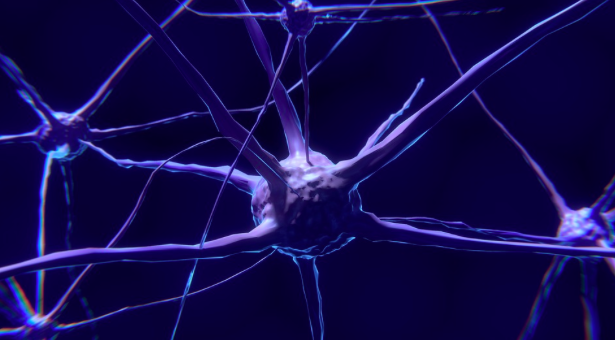We can all maintain and develop a brighter brain; recent research has uncovered many ways in which we can improve by practising simple activities daily. I have produced a mnemonic for the five basic areas – SPECS. This is not a comprehensive list but covers the ‘no-brainers’ and as a basic ‘must-do’ guide they are all reliably and scientifically tested.
Social

Our brains work best when we produce positive chemicals. These are released as a result of pleasurable experiences or thoughts. Most normal people produce positive chemicals during social interaction. At best, when socially engaged, the brain builds connections (gets stronger) and responds positively in other areas of thinking capability. At worst, lack of social interaction is known to contribute significantly to dementia. We are designed to be social beings. People can die from lack of love and connection.
Physical
This is as basic as it gets! However, these basic physical needs may be the most influential activities for us to engage in. The brain needs the right fuel (food and drink), exercise and sleep. These basics enable the brain to function properly. Motor skills can be improved through practice (e.g. hand–eye coordination). If the brain does not get enough oxygen, the cognitive potential cannot be developed at all. If experiences and learning are not converted during sleep, we will not remember them at all. If nothing else, develop this area of your brain health.
Emotional
Our emotional state affects thinking directly. Stress and negative thinking produce unhelpful and damaging chemicals. In some cases, emotional stress can stop the brain from using its thinking powers altogether! Emotional hijack is a term used for this. The brain is perfectly capable of switching off our rational and sensible control if it feels seriously threatened. We have perhaps experienced this during ‘road-rage’. We also see extreme cases of this on the news when a normal person under pressure has ‘snapped’ and kills others. People around them are often surprised – including the individuals themselves. In a high-pressure society, this is happening more regularly. Preventing stressful situations is not an option, but knowing how to control our emotional response is vital.
Cognitive
 This is the function of ‘knowing’ things. It includes our processing of facts and feelings and the use of memory. The brain knows (recalls) and uses (rationalises) and imagines (possibility thinking) information via our physical senses. We use this integrated knowledge to predict the future, innovate and make judgements for decisions. Verbal, spatial, logic, language and other skills can be learnt and improved.
This is the function of ‘knowing’ things. It includes our processing of facts and feelings and the use of memory. The brain knows (recalls) and uses (rationalises) and imagines (possibility thinking) information via our physical senses. We use this integrated knowledge to predict the future, innovate and make judgements for decisions. Verbal, spatial, logic, language and other skills can be learnt and improved.
Many online brain sites have entered the market of selling brain training games based on improving these cognitive functions. Specific cognitive skills can be divided into three categories: Those that speed up and enable better sensory input to the brain; those that develop faster and more whole-brained processing of the input and those that enable better long-term retention, integration and recall of the input.
Typically, sites such as Lumosity or Posit Science focus on games and measures that develop the following skills:
- Speed and spontaneity
- Focus and ability to hold attention
- Memory – short and long term
- Adaptability and flexibility
- Abstract, metaphorical and conceptual
- Fluidity and connectivity
- Rational and intuitive
There is no shortage of online development. They certainly could help cognitive development plus they are measurable and fun. However, the ability to improve one aspect of cognitive processing (or even several in isolation) does not necessarily lead to overall improved brain function. It is the integration of these functions within a physically, emotionally, socially and spiritually healthy brain state that will bring real results. The key is to use as many different cognitive skills as possible and add to the other four ways outlined here. Grownups games provide a good selection of brain training. If you want to have your capability tested, go to one of the other two.
Spiritual
 Spiritual is a difficult word. It conjures up images of religion or seekers in robes sitting on a mountain top hoping to find life’s purpose. I should define what I mean by spiritual here. In short, it is the way in which we understand the non-tangible things that matter in our world. It is an awareness of beliefs that explain our existence. It is also the understanding of ‘greater good’ (altruism) as a necessary and ancient human trait – we are wired to feel good when contributing to something much greater than ourselves. Conscious awareness of our unconscious wiring enables us to be objective as we control our emotions. Our belief systems control the way in which we allow our brains to perceive and form our reality; they form a safe operating framework. The human mind seems to grow more altruistic as it gets older and it needs more meaning in old age. Make sure you harness this by making a difference for others in some aspect of your life and feel good.
Spiritual is a difficult word. It conjures up images of religion or seekers in robes sitting on a mountain top hoping to find life’s purpose. I should define what I mean by spiritual here. In short, it is the way in which we understand the non-tangible things that matter in our world. It is an awareness of beliefs that explain our existence. It is also the understanding of ‘greater good’ (altruism) as a necessary and ancient human trait – we are wired to feel good when contributing to something much greater than ourselves. Conscious awareness of our unconscious wiring enables us to be objective as we control our emotions. Our belief systems control the way in which we allow our brains to perceive and form our reality; they form a safe operating framework. The human mind seems to grow more altruistic as it gets older and it needs more meaning in old age. Make sure you harness this by making a difference for others in some aspect of your life and feel good.
By Janis Grummitt – Workplace Wisdom
Janis is the founder of the Wise Society movement. She also runs workshops on building wisdom and improving thinking.
Read more from Janis
©Janis Grummitt 2010









Join the Discussion
Type out your comment here:
You must be logged in to post a comment.